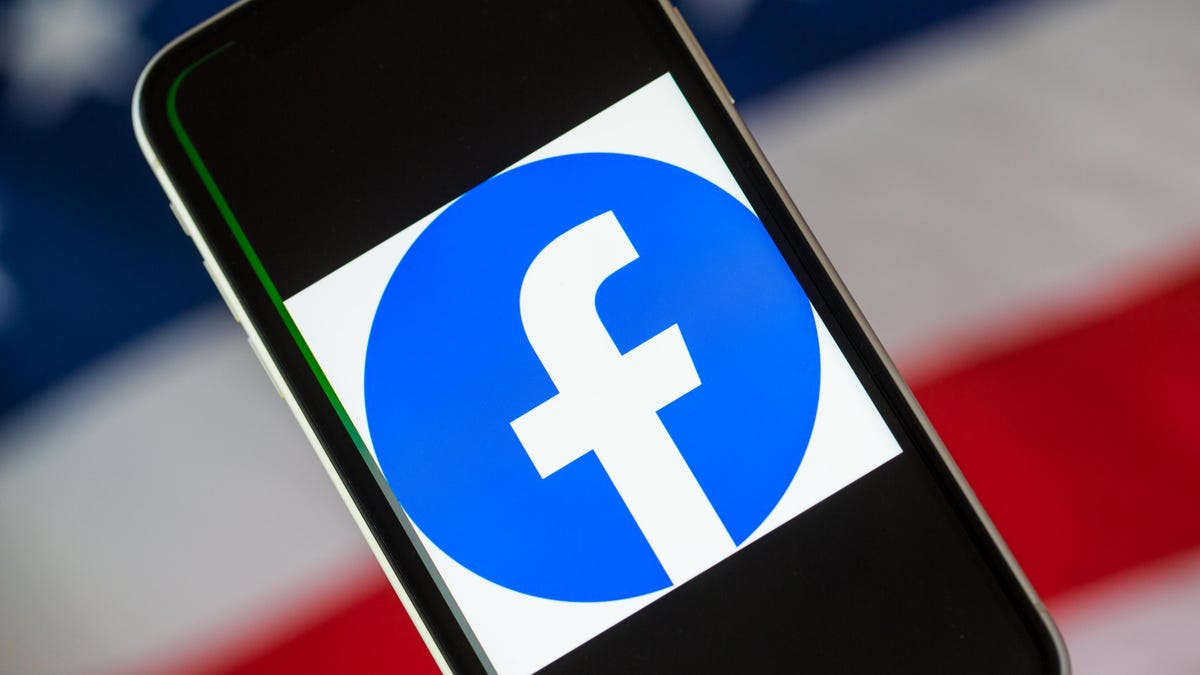Facebook intensifies its crackdown on QAnon conspiracy theory
The social network says it removed 790 groups, 100 pages and 1,500 ads tied to QAnon.

Facebook has faced criticism that it isn't doing enough to combat political misinformation.
Facebook is cracking down on groups, pages and ads tied to QAnon, a right-wing conspiracy theory that falsely claims there's a "deep state" plot against President Donald Trump and his supporters.
On Wednesday, the world's largest social network said it took down 790 groups, 100 pages and 1,500 ads tied to the conspiracy theory, a move that shows social media sites are ramping up their efforts to combat false information amid criticism they don't do enough to address the problem. In July, Twitter also said it pulled down more than 7,000 QAnon accounts that violated its rules.
Facebook has been under fire for not doing enough to slow the spread of the QAnon conspiracy theory. The Guardian reported in August that QAnon groups on Facebook are "growing at a rapid pace." NBC News, citing internal Facebook documents, also reported that month that QAnon groups on Facebook have millions of members. Meanwhile, Facebook is under more pressure to combat hate speech on its site after thousands of businesses stopped advertising on the site in July as part of a campaign organized by civil rights groups.
The social network said it's taking more steps to limit the reach of QAnon. It blocked 300 hashtags across Facebook and Instagram , the photo service it owns, related to the conspiracy theory. It's also restricted more than 1,950 groups and 440 pages on Facebook and more than 10,000 Instagram accounts tied to QAnon.
Facebook already has rules against inciting violence and a policy against what Facebook calls "dangerous individuals and organizations." The company said it's expanding that policy to "address organizations and movements that have demonstrated significant risks to public safety" but don't meet the criteria to be considered a "dangerous organization" that Facebook would ban. Dangerous organizations include groups involved in terrorism, criminal activity, organized hate and mass murder.
"While we will allow people to post content that supports these movements and groups, so long as they do not otherwise violate our content policies, we will restrict their ability to organize on our platform," Facebook said in a blog post. The company said it would take down accounts, pages and groups that discuss potential violence including those that use "veiled language and symbols" to do so. Accounts that don't meet the bar for removal won't be included in Facebook's suggestion to users about which groups to follow, and will be ranked lower in the News Feed, limited in search results and barred from purchasing ads and fundraising.
While Facebook is limiting the reach of QAnon, it's unclear how effective the social media efforts will be. Content moderation can be like a game of whack-a-mole and users try to find ways around a ban or restrictions.
Alex Stamos, the former Facebook chief security officer who now directs the Stanford Internet Observatory, said Wednesday night that QAnon is "closer to a religion than anything else now."
"It's a belief system that no matter what facts come out they're able...to fit those facts into their theory," Stamos said in a virtual talk hosted by The Commonwealth Club.
The "true believers" of QAnon organize on a core platform, then carry their message to Facebook, Instagram, Twitter, YouTube and other major social media sites.
"You have this core that I think will only be strengthened by the activity on the periphery where they're shutting...down their ability to spread their message," Stamos said.
At a White House press conference Wednesday, Trump said he didn't know much about the QAnon movement but also praised the conspiracy theory community.
"I don't know much about the movement other than I understand they like me very much, which I appreciate," he said. "I have heard that these people love our country."
Facebook has also been cracking down on militia organizations such as Antifa. The company has removed more than 980 groups, 520 pages and 160 ads from the social network related to these organizations. On Instagram, the company has restricted more 1,400 hashtags related to these groups and organizations.

